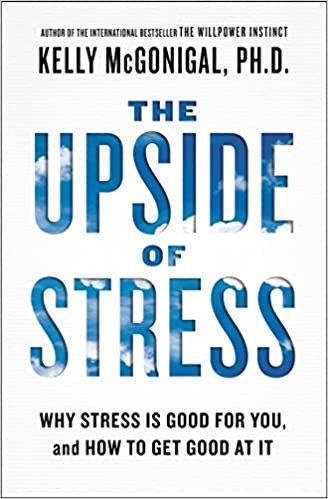The average reader of this post has extraordinary advantages. So many immediate physical dangers that our ancestors would have considered routine aspects of life, are no longer common threats. While few of us are still filled with the fear of death via poor harvests, routine bacterial infections or invading armies, genuinely happy people aren’t exactly common. One routinely cited feature of this widespread struggle for satisfaction – whether as a cause or as a symptom - is stress.
Is the “old school” right to scoff at concern over stress - have we all become soft? Or is stress just another unhealthy lifestyle choice that we’re more eager to cut out than our grandparents were? In this view, stress is another enemy alongside processed foods and cigarettes. Like those other enemies, stress was considered glamorous in bygone days, while today we worry that it can kill us sooner or later.
This is the message delivered or implied most often in sources ranging from clickbait articles to K-12 curricula and respected psychological / medical journals. Stanford health psychologist Kelly McGonigal presented a dissenting view in her book The Upside of Stress: Why Stress is Good for you, and how to Get Good at it. The book was a follow-up from a viral TED talk that she’d delivered two years before the book’s publication entitled “How to Make Stress Your Friend”.
Before delivering that TED talk, McGonigal changed her mind about stress. Whereas in her role as a health psychologist and lecturer, she’d previously espoused the idea that stress is toxic and will make you sick, she encountered a study on stress levels and life expectancies that triggered her initial reevaluation of this view. The correlational study results indicated that high stress levels increased the risk of death by 43% over an 8-year period, but also implied that attitudes toward stress mattered more than stress level themselves - in the study, people who had higher levels of stress but didn’t think stress was harmful had the lowest death rate, even lower than those who reported low levels of stress.
Throughout the book, Dr. McGonigal deploys evidence from further studies, surveys and the history of psychology to support her views on how to become “better” at stress. This advice comes in the form of insights about stress and various mindset frameworks that can help the reader repurpose stress to his or her own advantage. McGonigal also provides a series of exercises that the reader can use to either “rethink” or “transform” stress. For example, Dr. McGonigal lays out exercises that help the reader contemplate the cost of stress avoidance in their lives, figure out healthier approaches to stress that build resilience and identify potential benefits of stressful situations.
Of course, McGonigal’s line of reasoning and its conclusions won’t be for everyone, whether they’re a qualified expert in psychology or not. We’re certainly not psychologists - we’re just often stressed out like everyone else and found value in some of McGonigal’s arguments. She defines stress broadly as “what arises when something you care about is at stake”, which she meant to encompass related thoughts, emotions & physical reactions and how one chooses to cope. Stress is thus inextricably linked to meaning in life - you don’t stress out over things you don’t care about.
Also, attempting to avoid stress isn’t always a desirable or even viable option for everyone. Many may be dedicated to a career that they love and that society requires but would appreciate a better playbook to handle stressful moments that come with the job. Other folks may face immutable circumstances in their lives that make many days a challenge. Rather than being lectured that these circumstances outside of their control will lead to poor health and an early demise, they may want to give a fair hearing to Dr. McGonigal’s arguments. Her explanations of why we react to stress the way we do and how we can transform stress into an asset via mindset shift may fit better into lived realities.
The bottom line is that there must be so many people, including readers of Citizen Scholar, who’ve been well informed about the risks associated with stress and poorly informed about practical ways to navigate through it. The Upside of Stress will take you through one psychologist’s view of solutions to this knowledge gap. We encourage the exploration of this view as well as of other experts’ views.
Let us know your thoughts in the comments below, including whether you’ve read the book and what your takeaways were. We’re trying to spark discussion about the book and its subject material, not summarize it, so definitely come back & let us know your thoughts in the comments if you do end up reading it!
As always, thank you for your continued support of Citizen Scholar - if you found value in this post, please help us out and share it with a few friends!
Thanks again,
The Citizen Scholar Team














Share this post